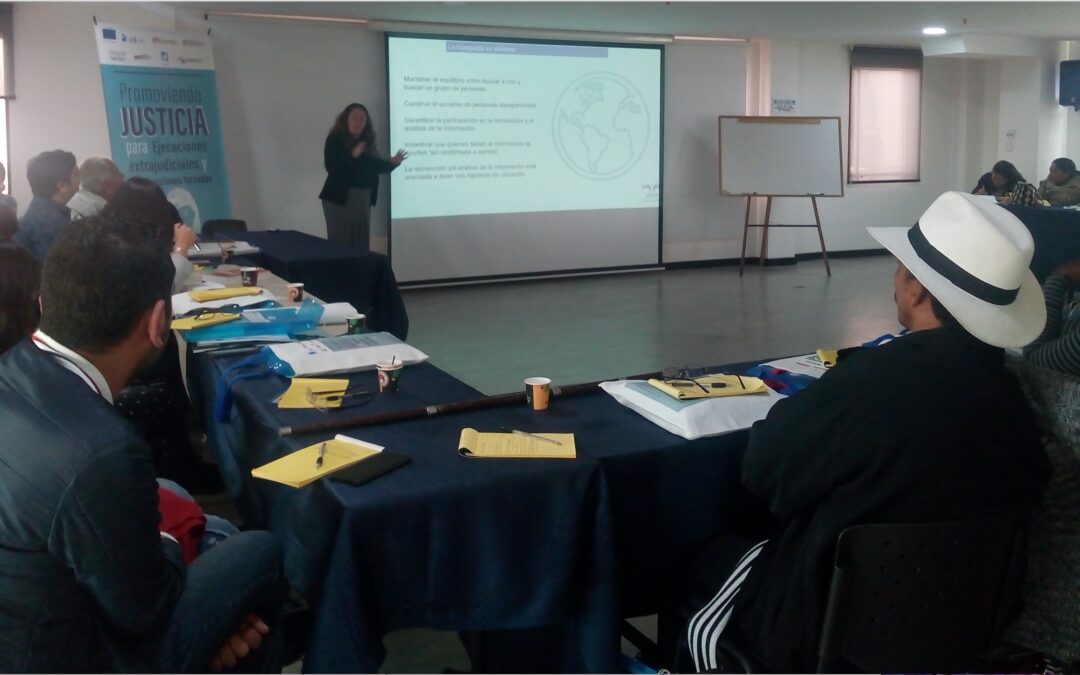
Oct 31, 2019 | News
On 29-30 October the ICJ, in partnership with dhColombia and the Argentine Forensic Anthropology Team (EAAF), hosted a two-day training workshop in Bogotá on the legal framework around enforced disappearance and extrajudicial killings.
The training aimed to improve the understanding of victims and human rights lawyers of the domestic law on extrajudicial killings and enforced disappearances in Colombia. It included an analysis of both the ordinary justice system, as well as transitional justice mechanisms. It also explored the role of the forensic sciences in tackling impunity for those crimes.
The ICJ in furtherance of its objective to promote accountability, justice and the rule of law in Colombia, has been continuously monitoring the investigation and prosecution of serious human rights violations and abuses, particularly extrajudicial killings and enforced disappearances. Perpetrators of such violations, which constitute crimes under international law, have enjoyed a high level of impunity. While there are numerous unresolved cases dating back to the 1970s, violations have continued even after a comprehensive peace agreement was signed in 2016 following decades of armed conflict.
In Colombia, achieving accountability for those crimes has proven difficult for several reasons, including the ineffective functioning of the justice system. Victims and their lawyers have faced serious obstacles in gaining access to effective remedies. In addition, the creation of new institutions by the Peace Agreement has changed some basic rules and procedures for the investigation and prosecution of those crimes. Consequently, the Colombian justice system is more complicated to understand not only for victims but for lawyers.
The training workshop was part of a broader regional project addressing justice for extrajudicial killings and enforced disappearances in Colombia, Guatemala and Peru. Participants were victims and human rights lawyers from different regions of the country, especially those where that is less opportunity to access legal and forensic training. Considering that capacity building activities are essential to the effective achievement of accountability, it is expected that participants of the training will obtain valuable tools to demand justice and remedy and reparations for serious human rights violations.
Contacts:
Rocío Quintero M, Legal Adviser, Latin America. Email: rocio.quintero(a)icj.org
Carolina Villadiego, ICJ Legal and Policy Adviser, Latin America, and Regional Coordinator of the Project. Email: carolina.villadiego(a)icj.org
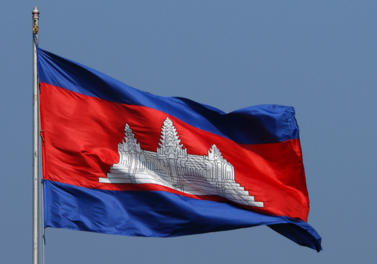
Oct 4, 2019 | News
Today, the ICJ and 36 other civil society organizations called on the Government of Cambodia to drop charges against former Radio Free Asia (RFA) journalists Yeang Sothearin and Uon Chhin, who are being tried on spurious charges for multiple offences in connection with carrying out their journalist functions.
This comes after the latest hearing in the case yesterday by the Phnom Penh Municipal Court, where it postponed delivery of its verdict for a second time. The Court has now ordered that the case be returned to a new investigating judge for a reinvestigation.
The case is emblematic of a pattern of instances where journalists, human rights defenders, community activists, members of the political opposition and others have been subjected to intimidation and harassment for exercising their fundamental freedoms through misuse of laws and the judicial system.
The ICJ and other organizations have called for a cessation of this practice and urged the government to comply with their obligations under international law to protect these freedoms.
The trial of the two journalists which concluded on 9 August, had initially been expected to result in a verdict on 30 August, before it was postponed until yesterday’s hearing, when it was again postponed.
“These charges should have never been brought against Yeang Sothearin or Uon Chhin – They were brought with the sole purpose of silencing their work as journalists and chilling other independent voices in the country from speaking,” said Frederick Rawski, ICJ’s Asia and Pacific Regional Director.
The ICJ has stressed that the case against journalists does not comply with Cambodia’s international legal obligations to respect the right to liberty and to a fair trial.
“Given the arbitrary legal bases upon which the journalists have been charged and tried, the prolonging of their case prolongs this harassment and additionally violates their right to be tried without undue delay,” said Rawski.
In November 2017, Yeang Sothearin and Uon Chhin were arrested and detained in Prey Sar prison before they were provisionally charged with “supplying a foreign state with information prejudicial to national defence” under Article 445 of Cambodia’s Criminal Code. In March 2018, they were further charged with alleged production of pornography under Articles 38 and 39 of the Law on the Suppression of Human Trafficking and Sexual Exploitation.
Both men face up to 16 years in prison. They are currently under judicial supervision, following their release on bail after being held in pre-trial detention for more than nine months.
The journalists were arrested following the shutdown of RFA’s Cambodia bureau in the midst of a sharp deterioration in the situation for human rights and the rule of law in Cambodia prior to the 2018 national elections.
In September 2017, in a statement to the UN Human Rights Council, the ICJ had highlighted that civil society, independent media and the political opposition were under sustained attack in a “carefully orchestrated effort to silence dissenting voices in the lead up to national elections” and that laws were “being weaponized to this end”.
In October 2017, the ICJ in a report on the human rights situation similarly warned that the government was “relying on judges and prosecutors who lack independence to silence dissent and dismantle democracy” through “an endemic system of political interference in high-profile cases and an equally entrenched system of corruption in all others”.
Following the national elections, this trend has only worsened.
In August and September 2019, the ICJ and other organizations highlighted the “ongoing human rights crisis” in Cambodia and called for strengthened scrutiny at the Human Rights Council of the human rights situation in the country.
Download
Cambodia-charges against journalist-news-webstory-2019-ENG (full story in PDF)
Link to Joint Statement available here.
Contact
Frederick Rawski, ICJ Asia and Pacific Regional Director, frederick.rawski(a)icj.org
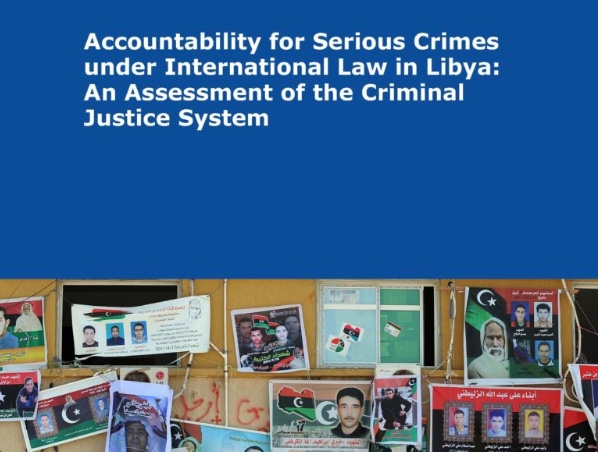
Oct 3, 2019 | News
Today, ICJ and the Defender Center for Human Rights (DCHR) filed a submission to the Human Rights Council’s Working Group on the Universal Periodic Review in advance of its review of Libya’s human rights record in May 2020.
Information provided in the submission was based on the ICJ report titled Accountability for Serious Crimes under International Law in Libya: an Assessment of the Criminal Justice System, published in July 2019.
In the submission, the ICJ and DCHR drew the attention of the Working Group on the UPR to the following concerns with respect to Libya:
- Impunity for crimes under international law committed by State and non-State actors;
- The insufficient penalization of crimes under international law;
- The lack or inadequacy of investigations and prosecutions of crimes under international law;
- The systemic failure to guarantee the right to liberty and fair trial rights at pre-trial and trial stages.
The ICJ and DCHR called on the Working Group and the Human Rights Council to urge the Libyan authorities to take the following actions:
With regard to insufficient penalization of crimes under international law:
- Enact laws criminalizing war crimes, crimes against humanity and arbitrary deprivations of life (in particular arbitrary and summary executions) in line with international law;
- Amend Law No. 10 of 2013 to bring the definition of torture in line with the Convention Against Torture and the definition of enforced disappearance in line with the International Convention for the Protection of All Persons from Enforced Disappearance, and criminalize other acts of cruel, inhuman or degrading treatment or punishment consistent with international law;
- Amend article 425 of the Penal Code to include a definition of the crime of slavery consistent with international law;
- Amend articles 407 and 408 of the Penal Code to criminalize rape in line with international law and standards; enact laws criminalizing all forms of sexual and gender-based violence; and repeal article 424 of the Penal Code which extinguishes a conviction for rape or indecent assault and grants a stay of execution of the penalty imposed against the perpetrator if they marry the victim; and
- Amend (or repeal) Law No. 35 of 2012, Law No. 38 of 2012 and Law No. 6 of 2015 to exclude all crimes under international law from the scope of amnesties.
With regard to the obligation to independently and impartially investigate crimes:
- Amend article 3 of the Code of Criminal Procedure (CCP) to remove the requirement that an investigation can only be commenced upon the receipt of a criminal complaint, extend the three-month deadline for victims to file a complaint and remove the deadline entirely for crimes under international law and for other serious crimes under domestic law;
- Amend article 7 of the CCP to grant victims’ family members the right to file a complaint with a view to ensuring the commencement of an investigation;
- Repeal article 224 of the Penal Code to remove the power of the Minister of Justice to control and direct investigations and prosecutions by the Prosecutor’s Office; and
- Repeal Decree 388 of 2011 granting the “Supreme Security Committee” investigative powers and article 2 of Law No. 38 of 2012 permitting the use of information and evidence collected by “revolutionaries” during investigations and at trial.
With regard to the systemic failure to guarantee the right to liberty and fair trial rights at pre-trial and trial stages, amend the CCP in order to:
- Exclude the possibility of detaining an accused on the sole ground that she or he does not have a fixed place of residence;
- Set a maximum duration of pre-trial detention, and specify that any such detention should be employed as last resort only when necessary, proportionate and reasonable according to the circumstances of the case;
- Ensure that detainees are brought before an independent and impartial judicial authority promptly following arrest, and no later than 48 hours in any event;
- Include a provision recognizing the right to habeas corpus, and the right to compensation and other reparations for unlawful detention;
- Provide for the right to legal counsel from the moment of arrest in all circumstances, and repeal the provision requiring a lawyer to seek authorization from the investigating judge to speak during the interrogation of the accused;
- Require the disclosure of all evidence to the accused and allow them to make copies of the case file before a case is referred to court for prosecution; and
- Grant individuals the right to appeal any conviction and sentence on alleged errors of law and fact and to reconsideration of a conviction upon discovery of a new fact.
Download
Libya-UNHCR submission final-advocay-non legal submission-2019-ENG (submission in PDF)
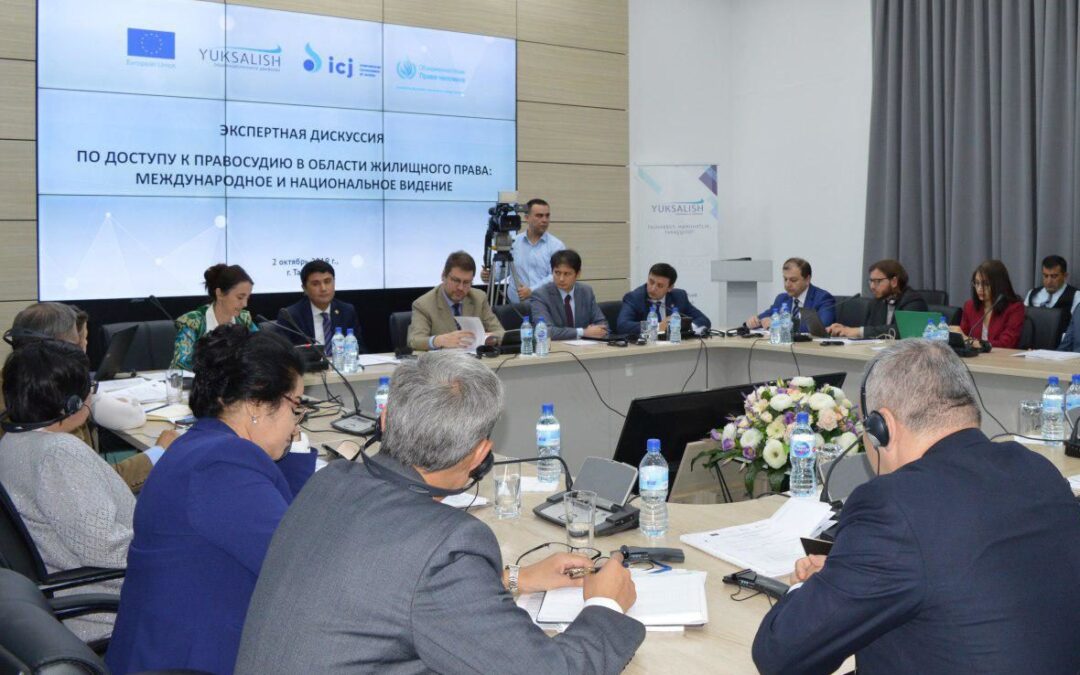
Oct 2, 2019 | News
Today, the ICJ, Regional Office of the UN High Commissioner for Human Rights (OHCHR) for Central Asia and the Nationwide Movement “Yuksalish” are holding an Expert Discussions on economic, social and cultural rights (ESC) rights and standards in Uzbekistan.
The topic of the Fourth Expert Discussions is “Access to justice for housing rights: international and national perspectives.” This discussion will be focused on the right to adequate housing.
The Expert Discussions are aimed at increasing awareness about the implementation of international law and standards on ESC rights by national courts, to facilitate access to justice in relation to ESC rights and effective use of international human rights law for ESC rights at the national level.
Each Expert Discussion is supported by presentations of international and national experts.
The first experts’ meeting was held in September 2018 on international standards in labour rights, the second meeting – held in December 2018 touched upon the principle of non-discrimination in courts and court decisions, and the third meeting – held in March 2019 – was dedicated to the rights of people with disabilities.
These three events brought together lawyers, defense lawyers, individual experts, civil society activists, NGOs, academia representatives and law students via interactive discussions, research papers, peer review articles and policy papers.
“In recent years, large-scale work has been carried out in Uzbekistan to provide housing for the rural population through the construction of affordable residential buildings according to updated standards. However, participatory decision-making is in need to guarantee housing rights. It is vital to create opportunities for various groups to speak out on the topic and establish an open dialogue. We hope that today`s platform is one of such tools for exchange of opinions,” said Akmal Burkhanov, Chairperson of the Nationwide Movement “Yuksalish”.
Head of the EU Delegation in Uzbekistan Ambassador Eduards Stiprais said: “Economic, social and cultural rights are fundamental rights for every individual. They are also fundamental for the economic development of the society. No man and no company will invest in improving its situation unless it can rely on its right to appropriate the fruits of its investment.”
Helena Fraser, UN Resident Coordinator, noted in her opening remarks that “under Sustainable Development Goal 11 by 2030 all UN member States commit to “make cities and human settlements inclusive, safe, resilient and sustainable. The nationally adopted SDG targets for Uzbekistan are to ensure access to affordable housing for all; and to increase the scale of participatory planning of human settlements”.
“These, our fourth expert discussions on economic and social rights, are devoted to the important issue of the right to adequate housing, a right that is well established in international human rights law. We aim to hold a constructive discussion, informed by international law as well as national best practices, to find ways to address an array of issues linked to housing rights in Uzbekistan. We would like to thank the EU Delegation for their support, as well as our partners – the Regional UN Human Rights Office (OHCHR) for Central Asia and the Nationwide movement “Yuksalish”,” said Róisín Pillay, Europe and Central Asia Programme Director of the ICJ.
Background
Uzbekistan ratified the International Covenant on Economic, Social and Cultural Rights (ICESCR) in 1995. In 2014, the Committee on Economic, Social and Cultural Rights recommended Uzbekistan “to take appropriate measures, including legislative and other measures, to provide all evicted persons with alternative accommodation or adequate compensation”.
The third national periodic report of Uzbekistan on implementation of provisions of the ICESCR was submitted in June 2019. The list of questions regarding the submitted report will be adopted in March 2020.
The Expert Discussions are organized in the framework of the project “Advancing Civil Society in Promoting Economic, Social and Cultural Rights’ (ESCR) Standards (ACCESS)” funded by the EU through the European Instrument for Democracy and Human Rights (EIDHR).
Contact
Dilfuza Kurolova, ICJ Legal consultant, t: +998 90 9050099 ; e: dilfuza.kurolova(a)icj.org
Download
Uzbekistan-Expert discussions ESCR-News-2019-ENG (full story in PDF)
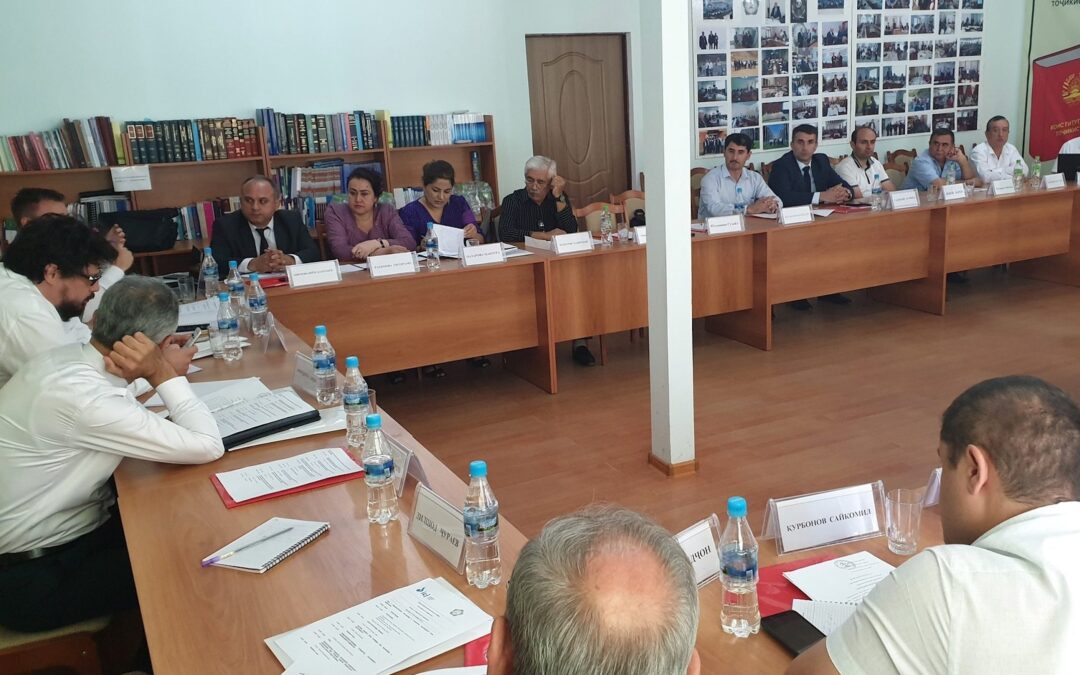
Sep 29, 2019 | News
On September 27-28, the International Commission of Jurists (ICJ), in cooperation with the Union of Lawyers of the Republic of Tajikistan, held a training on protecting the rights of lawyers and guarantees of the legal profession as well as the role of the Bar Association in protecting its members.
Around thirty lawyers from all regions of the Tajikistan took part in the training. Over two days lawyers discussed effective use of international mechanisms and international law and standards related to the protection of the rights of lawyers.
Particular attention was paid to the organization, functioning and role of the Commission for the Protection of the Professional Rights of Lawyers of the Union of Lawyers of the Republic of Tajikistan.
The event was attended by members of the Commission who had an opportunity to discuss the role and the effective work of this specialized body on protection of lawyers.
The Committee on the protection of the rights of lawyers of the Ukrainian National Bar Association delegated its members to the event to share their best practices and recommendations to overcome the challenges which arise in the work of these bodies.









